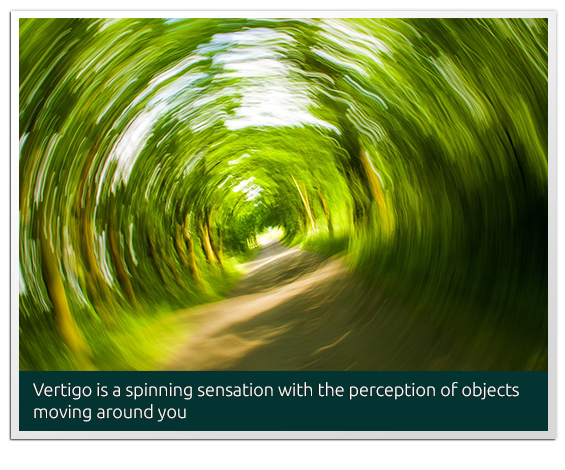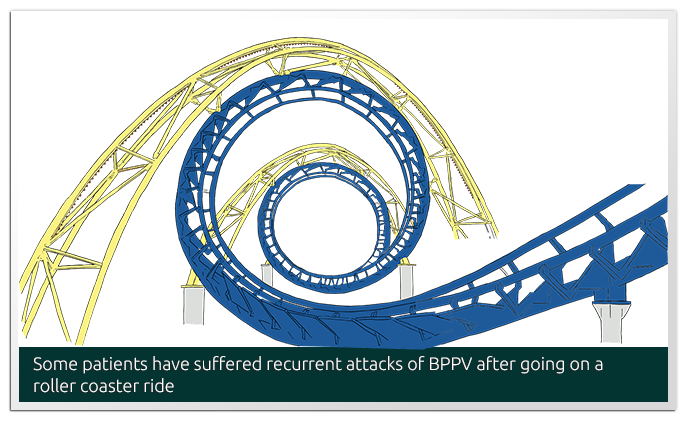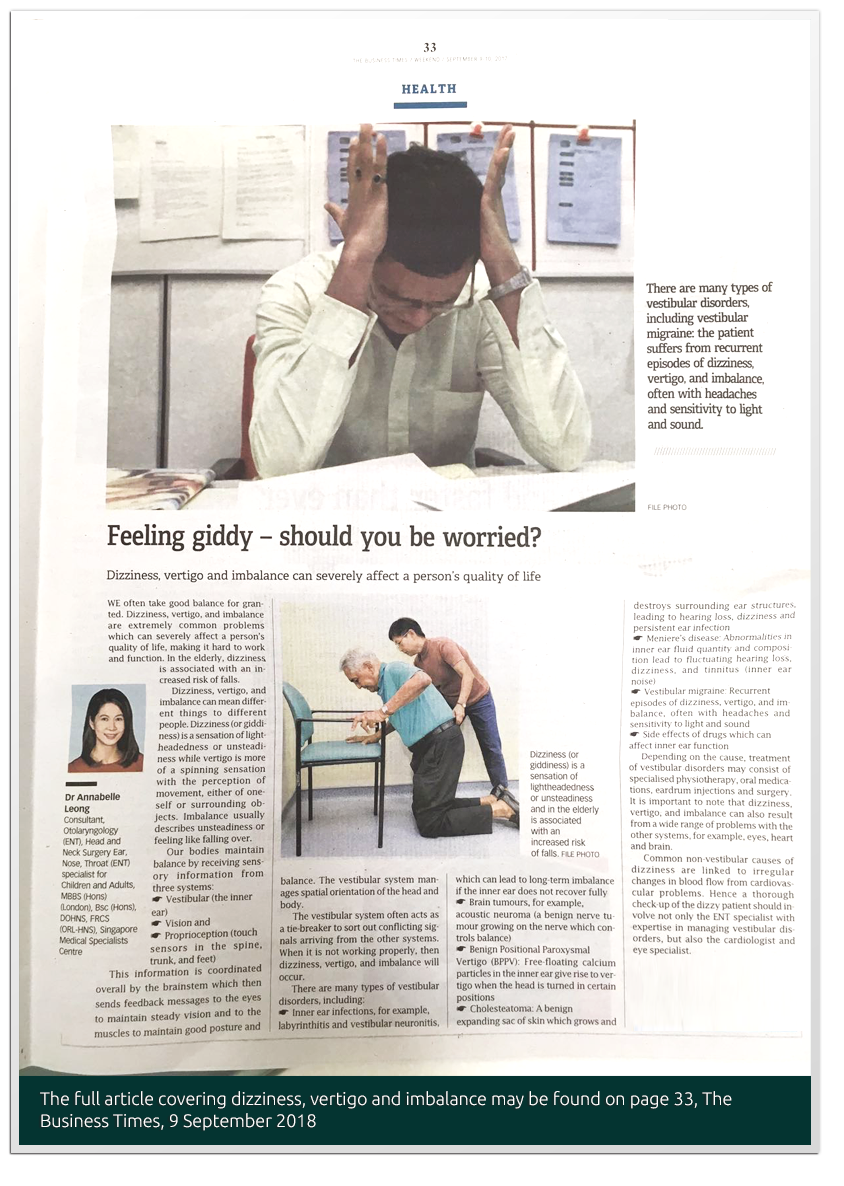Dizziness and Imbalance
Dizziness, Vertigo and Imbalance
Dizziness, vertigo (spinning type dizziness) and balance problems can severely affect a person’s quality of life. Dizziness, vertigo and imbalance can mean different things to different people. Dizziness (or giddiness) is a sensation of lightheadedness or unsteadiness while vertigo is more of a spinning sensation with the perception of movement, either of oneself or surrounding objects.

Listening carefully to a patient’s detailed history and confirming it with a thorough examination of the ears and neurological system are key to finding out the cause of these problems. A hearing test (audiogram) is also important as hearing may be affected.
How Do Our Bodies Control Balance?
Our bodies maintain balance by receiving sensory information from three systems:
- Vestibular (the inner ear)
- Vision and
- Proprioception (touch sensors in the spine, trunk and feet)
This information is coordinated overall by the brainstem which then sends feedback messages to the eyes to maintain steady vision and to the muscles to to maintain good posture and balance. The vestibular system manages spatial orientation of the head and body.
The vestibular system often acts as a tie-breaker to sort out conflicting signals arriving from the other systems. When it is not working properly, then dizziness, vertigo and imbalance will occur.
What Types of Vestibular (Inner ear) Conditions Cause Dizziness, Vertigo and Imbalance?
There are many causes, including:
- Inner ear infections, for example, labyrinthitis and vestibular neuronitis, which can lead to longterm imbalance if the inner ear does not recover fully.
- Brain tumours, for example, acoustic neuroma (a benign nerve tumour growing on the nerve which controls balance)
- Benign Positional Paroxysmal Vertigo (BPPV): Free-floating calcium particles in the inner ear give rise to vertigo when the head is turned in certain directions. Patients often report recurrent short spells of vertigo when turning over in bed.
- Cholesteatoma: A benign expanding sac of skin which grows and destroys surrounding ear structures, leading to hearing loss, dizziness and persistent ear infection.
- Meniere’s disease: Abnormalities in inner ear fluid quantity and composition lead to fluctuating hearing loss, dizziness and tinnitus (inner ear noise).
- Vestibular migraine: Recurrent episodes of dizziness, vertigo and imbalance, often with headaches and sensitivity to light and sound.

BPPV can be simply treated with a specialised Epley Manoeuvre to get rid of the free-floating calcium particles within the inner ear that are causing the vertigo.
Other conditions such as Meniere’s disease and vestibular migraine may need medication with careful titration of the type and dosage prescribed to control symptoms adequately. Sometimes, in cases of labyrinthitis or Meniere’s disease, which may present with sudden hearing loss, a course of steroid tablets or steroid injections into the ear itself may need to be undertaken to maximise recovery.







